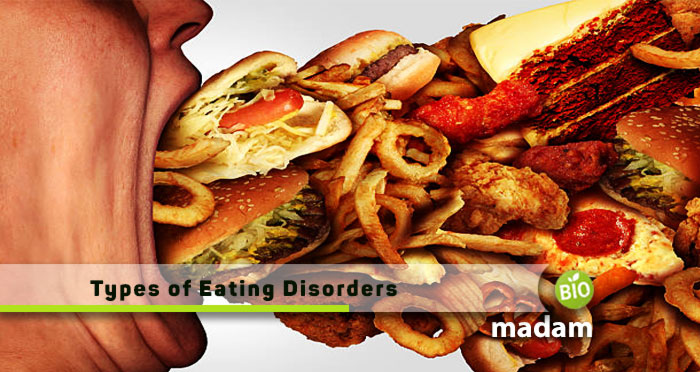Some people have weird eating habits, and unfortunately, they don’t control their eating style. And people around them and even themselves take their eating habits as a lifestyle. But actually, they’re suffering from eating disorders.
Eating disorders are irregular and improper eating habits with almost a phobic mind about body shape and weight. All eating disorders affect people psychologically, physically, and socially and are proven to be life-threatening.
Eating disorders are found primarily in teenagers. Still, there is no specific age range for people who suffer from this disorder. Eating disorders vary from mild to severe. Different types of Eating disorders are complex and don’t meet diagnostic criteria.
It is vital to be concerned about your eating habits and ask yourself,” Do I have an Eating Disorder?”
Types of Eating Disorders and Symptoms
DSM-5 recognizes the following eating disorders:
- Anorexia Nervosa
- Binge Eating Disorder
- Other Specified Feeding and Eating Disorders (OSFED)
- Avoidant Restrictive Food Intake Disorder (ARFID)
- Rumination Disorder
- Unspecified Feeding or Eating Disorder (UFED)
3 Most Common Types of Eating Disorders
Eating disorders can be caused by several factors, including genetic changes (alterations in genes), brain biology, and personality traits (anxious personality, depressive personality, and cultural ideals).
Eating disorders have several types, but the most common types of eating disorders are:
- Anorexia Nervosa
- Bulimia Nervosa
- Binge-Eating Disorder
Anorexia Nervosa
It is the most well-known and fatal eating disorder. It generally affects young adults and women more than men. People with anorexia nervosa cannot maintain appropriate body weight for height, age, and stature, resulting in a distorted body image. People with anorexia are repulsive to specific types of food, carbs, and calories they eat. Some people exercise compulsively or purge via vomiting and laxatives.
Anorexia Eating Disorder Symptoms
Its symptoms include:
- Having a low body weight and dramatic weight loss
- Constipation
- Skipping Meals
- Low Blood Pressure
- Extreme Fear of Gaining Weight
- Distorted Body Image
- Drink an excessive amount of water – see details on how much water should you drink daily.
- After every meal, visit the bathroom frequently.
People having this disorder are incredibly concerned with their body weight. They take note of each and everything they eat. Sometimes they exclude sugars and calories from their meal. After eating, they vomit out because fear of being overweight haunts them.
Sometimes they work out excessively, knocking out their brain.
They have connected self-esteem and self-perception with their weight and body shape. Such victims believe that perfection is thin. By eating and then vomiting out, they continuously harm themselves.
One can adopt healthier eating habits after treatment.
Bulimia Nervosa Eating Disorder
Bulimia Nervosa is another kind of eating disorder. People suffering from this disorder consume large portions of food quickly and then vomit it out to avoid weight gain. Keep in mind; it develops during adolescence and early adulthood. It is less common among men than women.

Symptoms of Bulimia Eating Disorder
The symptoms of Bulimia Nervosa are:
- Binge Eating/ overeating
- A feeling of lack of control on food taking
- A fear of gaining weight and extra fat despite having average body weight
- Laxative Abuse
- Vomiting
- Inappropriate and Irrational use of Drugs
Moreover, with time, a person becomes obsessed with these symptoms, following them repeatedly. Bulimia also causes sore throat, swollen salivary glands, worn tooth enamel, and tooth decay. In addition, it also causes acid reflux, irritation of the gut, severe dehydration, hormonal disturbances, and in extreme cases, bulimia can cause a stroke or heart attack.
Binge Eating Disorder
It is a severe eating disorder that includes eating massive proportions of food with uncomfortable feelings of shame and guilt. It is a newly recognized disorder. People with Binge Eating disorders gain weight, and it is the most common eating disorder in the US.
Symptoms of Binge Eating Disorder
Its symptoms can be:
- Can’t eat in public
- Eating too Fast
- Extremely Concerned about Body Weight
- Eating Alone
- Guilty Feelings
Causes of Eating Disorders
Different factors and causes are responsible for eating disorders, like social, biological, and psychological factors.
Biological Causes of Eating Disorders
Many pieces of research proved that a man or a woman who has a sibling suffering from an eating disorder is more vulnerable to getting it.
Brain Imbalance
Serotonin acts as a neurotransmitter and a hormone, associated with maintaining mood. It also helps in eating, sleeping, and digestion. But some imbalance in it related to the regular diet can affect the person, and he can be a victim of an eating disorder.
Social Issues
The modern age is the age of advancement in every field of life. The fashion industry has flourished. And the media is playing a considerable role in it. The ideal romantic world is portrayed in magazines, newspapers, dramas, and TV.
They pretend as perfection lies in being smart and thin. People and especially women, get a false sense of themselves. This leads to a distorted image of oneself and low self-esteem. Teenagers and young women become victims of an eating disorders in this way.
Psychological Factors
Rage, family conflicts, trauma, obsessive thinking, and low self-esteem can be the contributing psychological factors for a person suffering from an eating disorder.
Trauma
Sexual assault or harassment can lead to eating disorders in a way that makes him feel guilty about his own body, along with guilt and shame. Victims think of themselves as the worst and unworthy of anything and try to harm themselves through fatal eating habits. Their fellows over their eating patterns often bully them.
Getting Help for Eating Disorders
If you have a friend suffering from an eating disorder, you should convince him to get professional help. As parents, you should look to the diet routine of your children and the fellows your children get mixed up with. You should confide in him, try to make him more hopeful about the future, and seek help from a doctor.
Treatment
Treatment of eating disorders and compulsive overeating can include help from a psychologist, nutritionist, and your friends and family.
Psychologist
A psychologist can use therapy. He will try to figure out your eating habits and change them with healthy ones.
Cognitive Behavioral Therapy

It studies behaviors and thoughts connected with your eating disorder. It helps you change your false and distorted eating thoughts to improve your diet.
Nutrition
Your nutrition can help you plan a healthy meal and can aid you by telling steps to avoid overeating and dieting.
Help from Family and Friends
You can get support from your family and friends. They can help you to follow a routine according to the diet plan. They can help you to ensure regular visits to your nutritionist or therapist. Additionally, they will help you feel better.
Medications for Eating Disorders
Numerous medications have proven beneficial for people suffering from eating disorders as they might be due to depression. Hence, in this case, doctors suggest their patients take antidepressants. Not only does it helps eliminate the disorder, but it also keeps the patient active. Moreover, this entire journey will let you have complete support from your family, friends, and of course, doctors.

Hi, my name is Eva. I am currently practicing as a clinical social worker, that being my childhood desire. As a licensed therapist holding MPhil in Clinical Psychology, I am now on biomadam to provide the natives with the best family advice! Do you have any questions? See you in the comment section.

